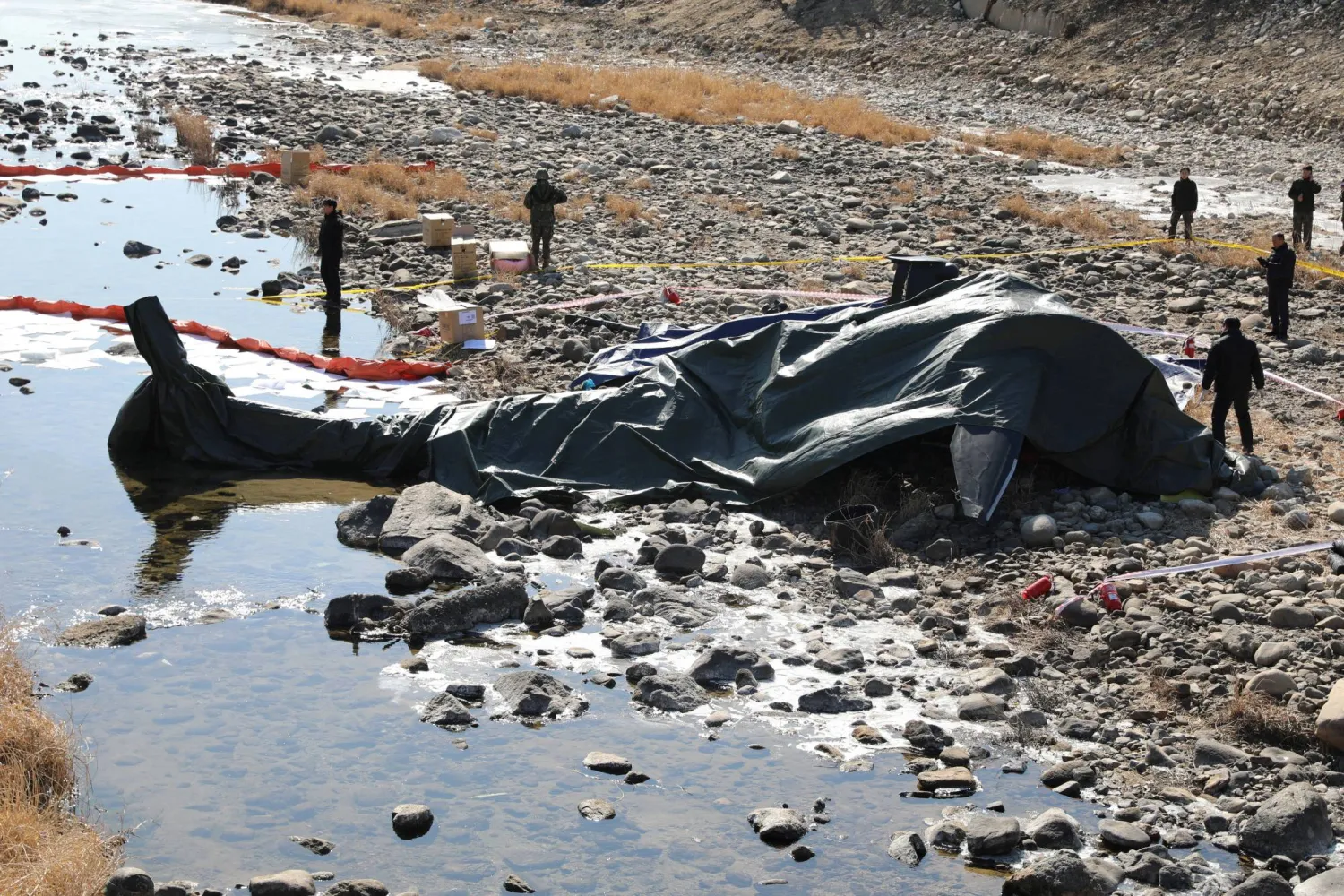North Korea is increasing its repression of human rights and people are becoming more desperate and reportedly starving in parts of the country as the economic situation worsens, the UN rights chief said Thursday.
Volker Türk told the first open meeting of the UN Security Council since 2017 on North Korean human rights that in the past its people have endured periods of severe economic difficulty and repression, but “currently they appear to be suffering both.”
“According to our information, people are becoming increasingly desperate as informal markets and other coping mechanisms are dismantled, while their fear of state surveillance, arrest, interrogation and detention has increased,” he said.
North Korean leader Kim Jong Un closed the borders of his northeast Asian nation to contain COVID-19. But as the pandemic has waned, Türk said the government’s restrictions have grown even more extensive, with guards authorized to shoot any unauthorized person approaching the border and with almost all foreigners, including UN staff, still barred from the country, The Associated Press said.
As examples of the increasing repression of human rights, he said, anyone found viewing “reactionary ideology and culture” — which means information from abroad, especially from South Korea — may now face five to 15 years in prison. And those who distribute such material face life imprisonment or even the death penalty, he said.
On the economic front, Türk said, the government has largely shut down markets and other private means of generating income and increasingly criminalized such activity.
“This sharply constrains people’s ability to provide for themselves and their families,” he said. “Given the limits of state-run economic institutions, many people appear to be facing extreme hunger as well as acute shortages of medication.”
Türk said many human rights violations stem directly from, or support, the militarization of the country.
“For example, the widespread use of forced labor — including labor in political prison camps, forced use of school children to collect harvests, the requirement for families to undertake labor and provide a quota of goods to the government, and confiscation of wages from overseas workers — all support the military apparatus of the state and its ability to build weapons,” the UN high commissioner for human rights said.
Elizabeth Salmón, the UN special investigator on human rights in North Korea, echoed Türk: “Some people are starving. Others have died due to a combination of malnutrition, diseases and lack of access to health care.”
The United States and North Korea, which fought during the 1950-53 Korean War, are still technically at war since that conflict ended in a truce, not a peace treaty. Salmón said the frozen conflict is being used to justify the continued militarization.
North Korea’s “Military First” policy reduces resources for the people, Salmón said, and the country’s leaders demand that they tighten their belts so the money can be used for the nuclear and missile programs.
The Security Council took no action, but afterward US Ambassador Linda Thomas-Greenfield, who chaired the meeting, read a statement on behalf of 52 countries while flanked by many of their ambassadors.
The statement said the North Korean government commits “acts of cruelty and repression” at home and abroad which are “inextricably linked with the DPRK’s weapons of mass destruction and ballistic missile advancements in violation of Security Council resolutions.” The Democratic People’s Republic of Korea is the official name.
The countries called on all 193 UN member nations to raise awareness of the links between the human rights situation in North Korea and international peace and security, “and to hold the DPRK government accountable.”
North Korea on Tuesday denounced US plans for the council meeting as “despicable,” saying it was only aimed at achieving Washington’s geopolitical ambitions.
Vice Foreign Minister Kim Son Gyong called the United States a “declining” power and said if the council dealt with any country’s human rights, the US should be the first “as it is the anti-people empire of evils, totally depraved due to all sorts of social evils.”
China and Russia, both allies of North Korea, opposed the meeting, saying its human rights situation doesn’t pose a threat to international peace and security.
China’s deputy UN ambassador Geng Shuang said pushing the council to consider human rights at a time when confrontation has intensified on the Korean Peninsula will escalate the situation.
“It is irresponsible, unconstructive and an abuse of the council’s power,” he said. He urged the council instead to take “practical actions to respond to reasonable concerns of the DPRK” and create conditions for a resumption of talks.
Russia’s deputy UN ambassador Dmitry Polyansky called the meeting “propaganda” and “a cynical and hypocritical attempt by the US and its allies to advance their own political agenda to step up pressure on Pyongyang.”
He dismissed Western attempts to link North Korea's human rights situation to peace and security as “absolutely artificial.”
But Thomas-Greenfield said Pyongyang's “war machine,” which is “powered by repression and cruelty,” is undeniably a matter of international peace and security. She said that is why the US, Japan and Albania requested Thursday's long-overdue meeting.









